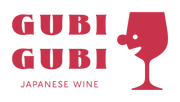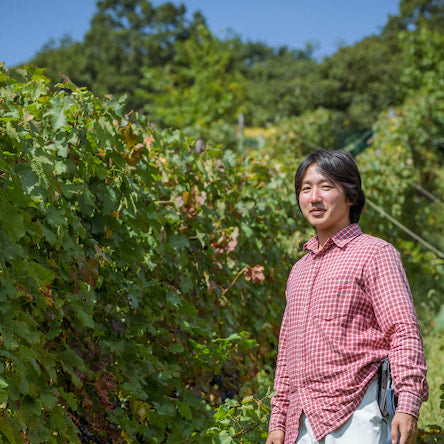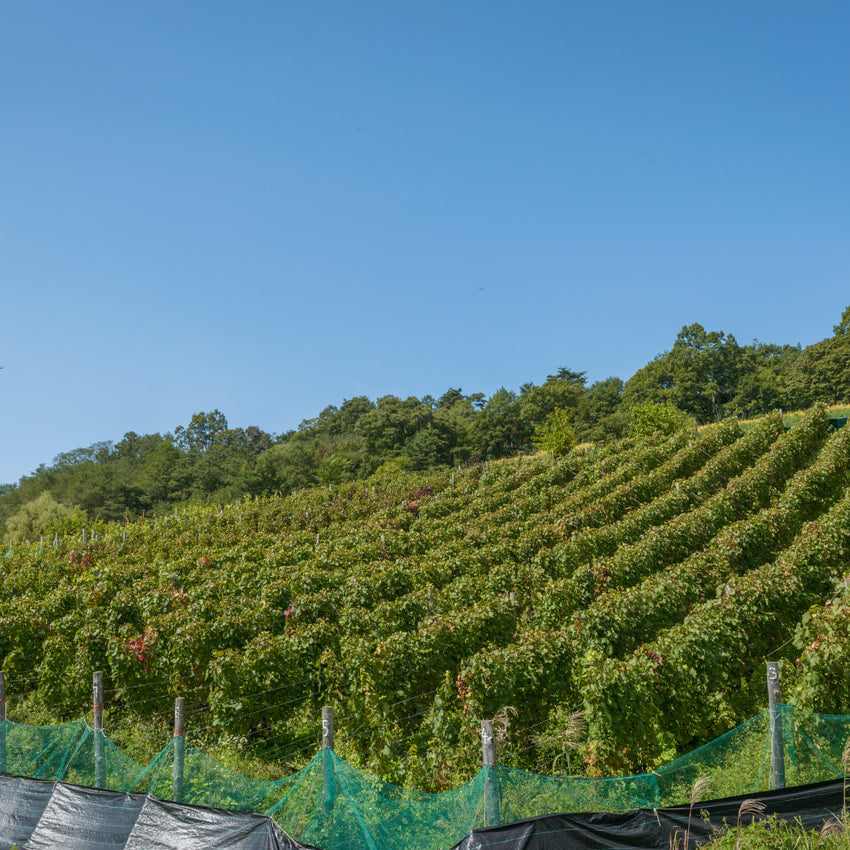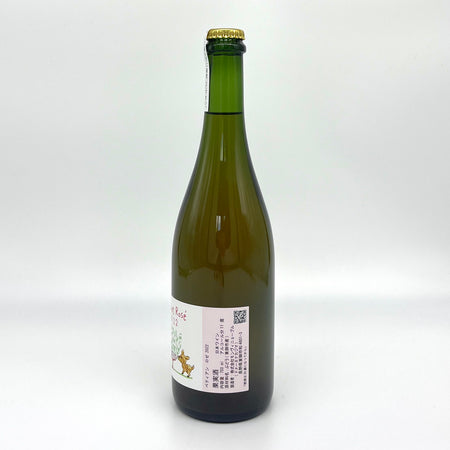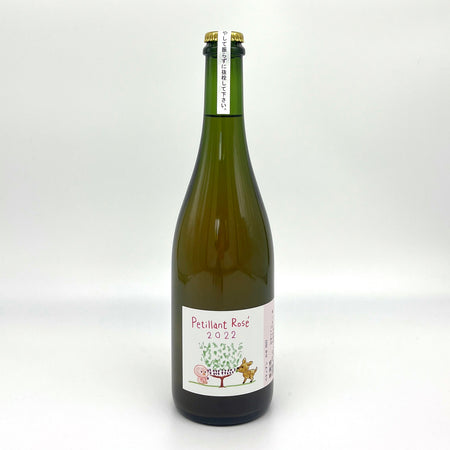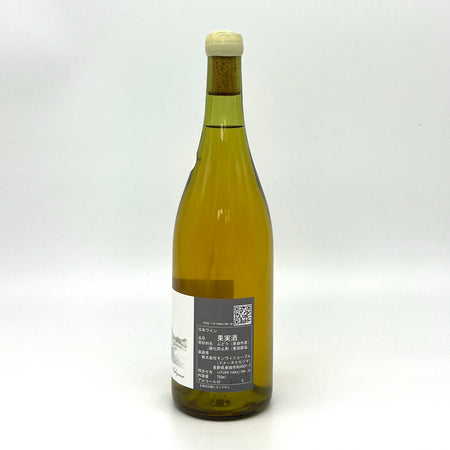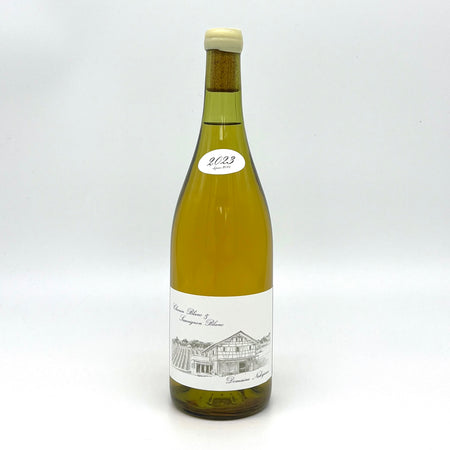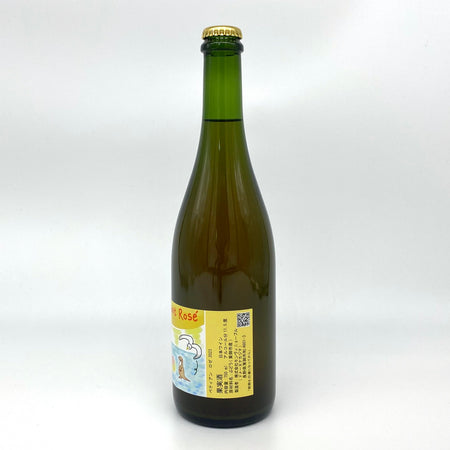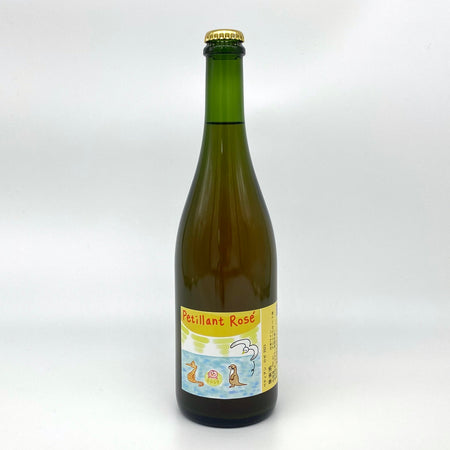Domaine Nakajima
Tomi, Nagano
People
Domaine Nakajima is a winery founded by Yutaka Nakajima in 2014 in Tomi, Nagano. Tomi is also part of the Chikumagawa Wine Valley, one of the areas where Nagano promotes the wine industry.
When Yutaka was a businessman, he attended cooking classes organised by Le Cordon Bleu, a world-renowned culinary education institution, as a hobby. He became interested in wine as he bought wines to match the dishes he made there. He also attended wine school and eventually qualified as a wine expert. Around that time, he visited a hill of vineyards in Saint-Émilion, Bordeaux, and thought, "If only I could spend the rest of my life in such pleasant vineyards", which inspired him to become a winemaker.
He then moved to Tomi in 2009. Since then, he has trained at Domaine des Bois Lucas in France, which is owned by Junko Arai, a winemaker who makes wines that he likes, as well as at the Bernhard Huber in Germany and Coco Farm & Winery in Tochigi. These wineries were mainly wineries that vinified with wild yeasts.
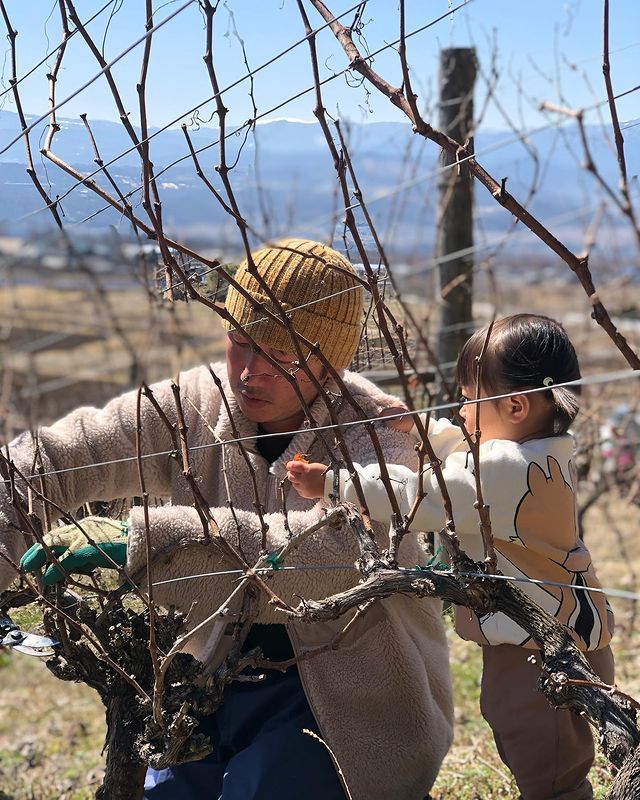
At the same time as receiving training, he personally approached local people to find a vineyard and started growing wine grapes in 2010; the first harvest came in 2013, and he commissioned Funky Chateau (Aoki Village in Nagano) to produce the wine. Having made steady progress towards his dream, Yutaka opened Domaine Nakajima the following year.
Vineyard
Domaine Nakajima's vineyards are located in Tomi, which is said to be ideal for growing wine grapes due to low rainfall and large temperature differences during the day. Most of them have strong clay soil and steep south-facing slopes at an altitude of 850 metres, making it impossible for tractors to get inside, so most of the work is done by hand. The family, including his wife Michiru, work together.
Currently, the vineyards are mainly planted with European varieties such as Cabernet franc, Sauvignon blanc, Merlot, Chenin blanc, Savagnin and Pinot noir.
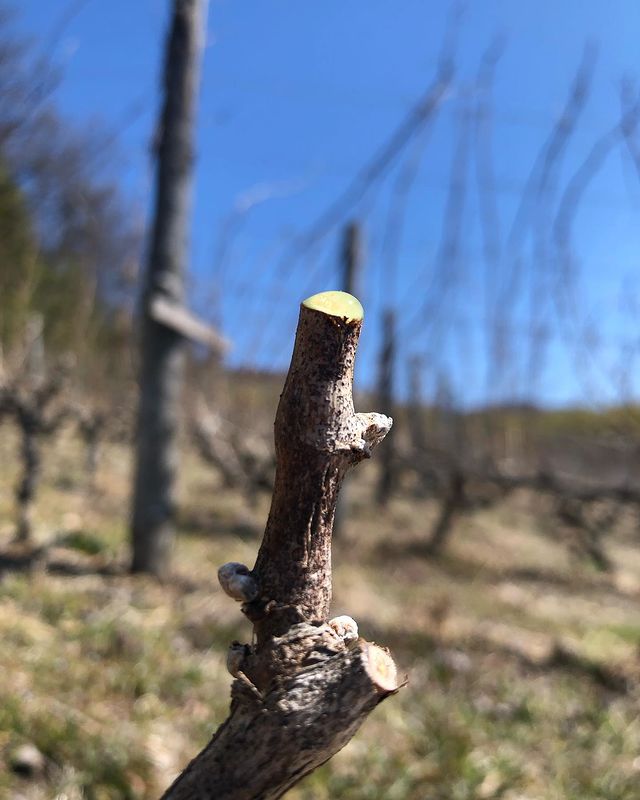
Yutaka says: "Grapes are strong plants. Only when they withstand various stresses and bear fruit can they become tasty wines. I want the grapes to endure a certain amount of insects, disease and drought to bring out the true potential of the grapes".
For this reason, no insecticides are used, insects on branches are removed by hand one by one and only fungicides permitted for organic cultivation are used. They try to take care to prepare in advance for the future so that everything is done with the minimum amount of pesticides required, the minimum amount of mowing required and the minimum amount of training required.
The model for the label of their wine “Petillant Rosé” is a wild bird hatchling from a bird's nest built between the branches of the Chenin Blanc. The fact that wild birds nest in the vineyards tells us that the vineyards are so environmentally friendly and safe. At the moment, the winery only produces a few thousand bottles of wine each year from its own vines, but it has 1.5 ha of its own vineyards and can produce 5,000 bottles of wine when the vines get mature.
Winemaking
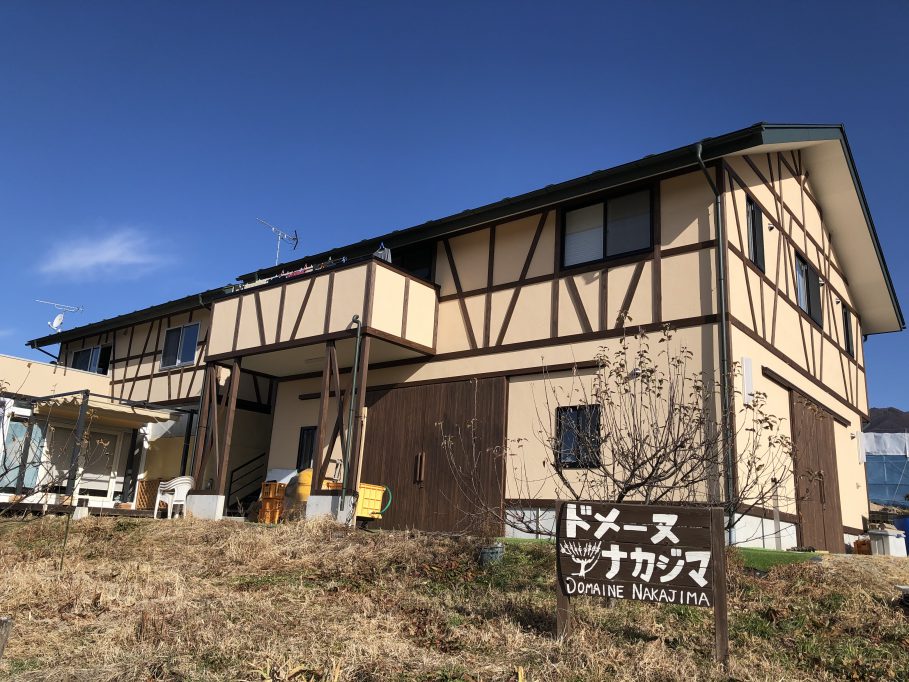
When Yutaka makes wine, he always thinks: "I don't make wine, I make good wine". That is the same feeling as when he cooks a meal or invites guests over for dinner, he wants to make it tastier and make the guests pleased.
Of course he wants to make sure that the grapes from his own vineyards, which are grown on steep slopes and have yet a low production at the moment, taste good, but even if it is a grape that he has purchased or a low-priced wine, the feeling is the same: we want to make it taste a little better.
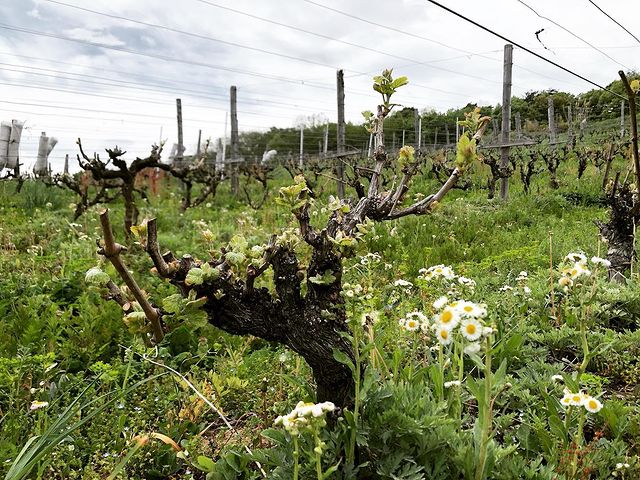
For instance, the Petillant Naturel Rosé that he makes every year. It all started in 2013, a year before the winery opened, when preparations were being made for the opening. At the time, Yutaka faced the challenge of how to make a 'unique wine' with Kyoho, a Japanese table grape variety. But if he was going to make wine, he didn't want to make wine just to make a lot of production, he wanted to make wine that was 'original' and tasty so that it wouldn't be 'unsold'.
Table grapes have a high water content, so the water content should be reduced to intensify the flavour. To achieve this, they must be picked late or dried in the shade. Late picking is difficult, given the stress on the grapevines. He wants to make a cloudy wine with lees so that the wine does not taste thin. He wants it to be sparkling so that its lees are stirred throughout. He also wants to make a wine without additives, with spontaneous fermentation, so that it has the gentle taste he likes. He couldn't think of a better Kyoho wine, and that's what he came up with Petillant Naturel Rosé 2014.
From there, Yutaka repeated the trial and error process every year until now. At first, the grapes were crushed by foot only through plastic, but the grapes were too hard, so from around 2016, he built a grape crusher with materials from a home improvement shop, which has been used every year with slight improvements. This crusher only produces a single crack in the grape skins, so after the crushing, he crushes the grapes moderately with boots.
A hydraulic basket press, which was introduced in 2015, has been used for pressing and the outer frame was changed from wooden to stainless steel in 2021. The juice soaked into the wooden frame during the day-long pressing process, so for hygiene reasons he changed to stainless steel because he thought it was safer to use. He felt that the taste had become somewhat cleaner. Improving the tools is one of Yutaka's pleasures.
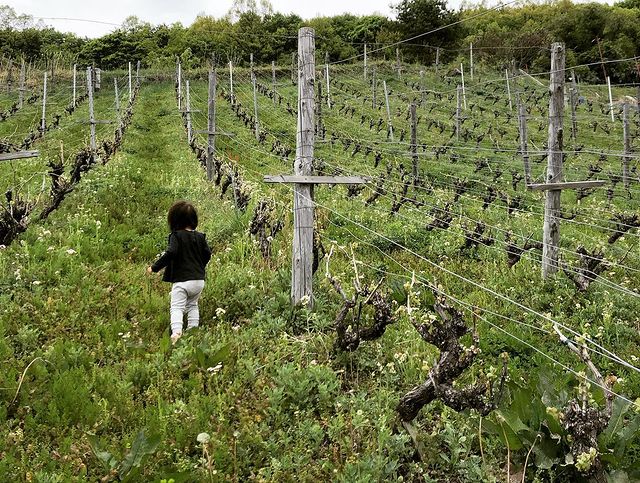
When Yutaka first started making wine, he used to evaluate the finished wine only on his own scale and reflect it in the following year's production, but now he wants to make wines that will be appreciated by experienced drinkers as well. He wants to gradually raise the bar in his evaluation criteria and use it as a motivation to do a good job.
For several years now, he has been gradually receiving more and more orders from abroad. He has the pleasure of seeing how his wines are received abroad.
